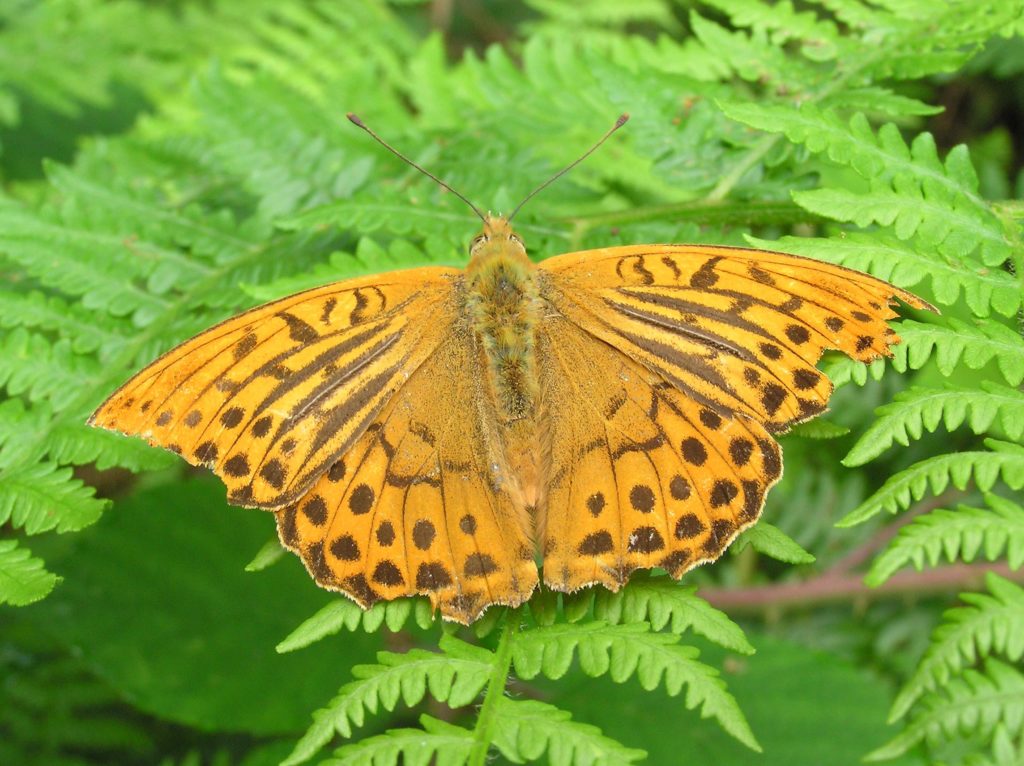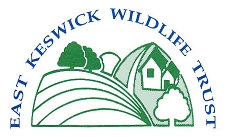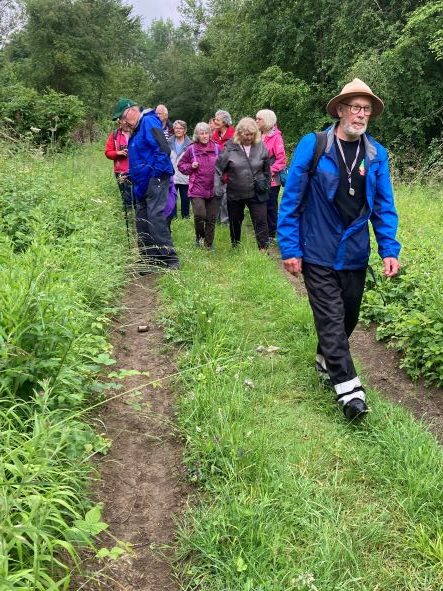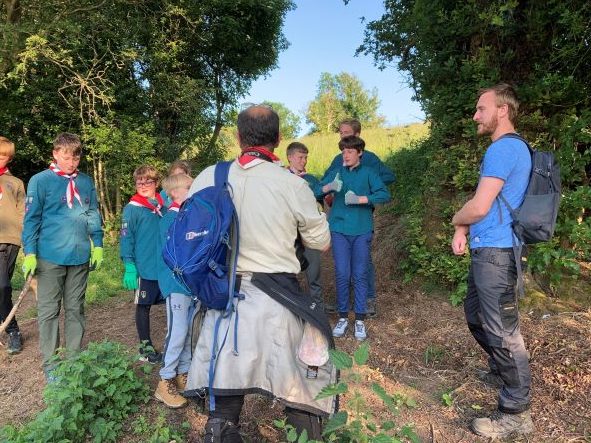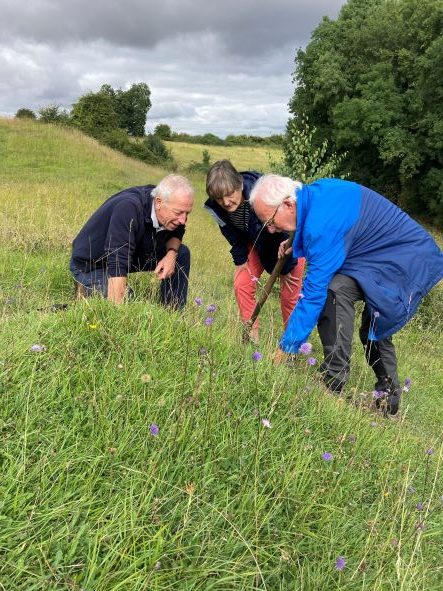
Category Archives: Flora and Fauna
Askham Bryan College Visit – July 2021
Postponed from last year due to covid and organised by Judith and John Pentith, the Askham Bryan Gardening Club visited the trust on 3rd July 2021. A day which was very, very wet but turned out to be a very enjoyable full day.
In the morning the large group was shown around the inner village reserves. Lunch in the Duke, with time to dry out a little, was followed by a guided walk around Ox Close Wood.
Subsequent comments were enthusiastic:
‘Thank you for arranging the visit to East Keswick on Saturday, we found it fascinating and really enjoyed the morning despite the soaking!’
‘An absolute joy to see such beautiful places, particularly enjoyed the range of flowers in the meadows and the wide variety of grasses and sedges by the marsh. Loads of orchids and to be introduced to the Thistle-broomrape (also known as Yorkshire broomrape), which is only found in our county was special. But the star of the show for me, was to see at last Herb Paris, which was the absolute icing on the cake! Seen so often in guide books, but never found before.’
‘The whole soggy day was enlivened by our two very enthusiastic guides – thanks again!’
Scouts at the Fitts
Recent Sightings
A short walk through Ox Close Wood last Sunday proved very fruitful.
A number of fungi are still showing including the common Orange Peel fungus that grows on the soil of unploughed fields and (pictured) the Yellow Brain fungus. This is a parasitic fungus that gets its nutrients from other fungi that feed on dead wood.
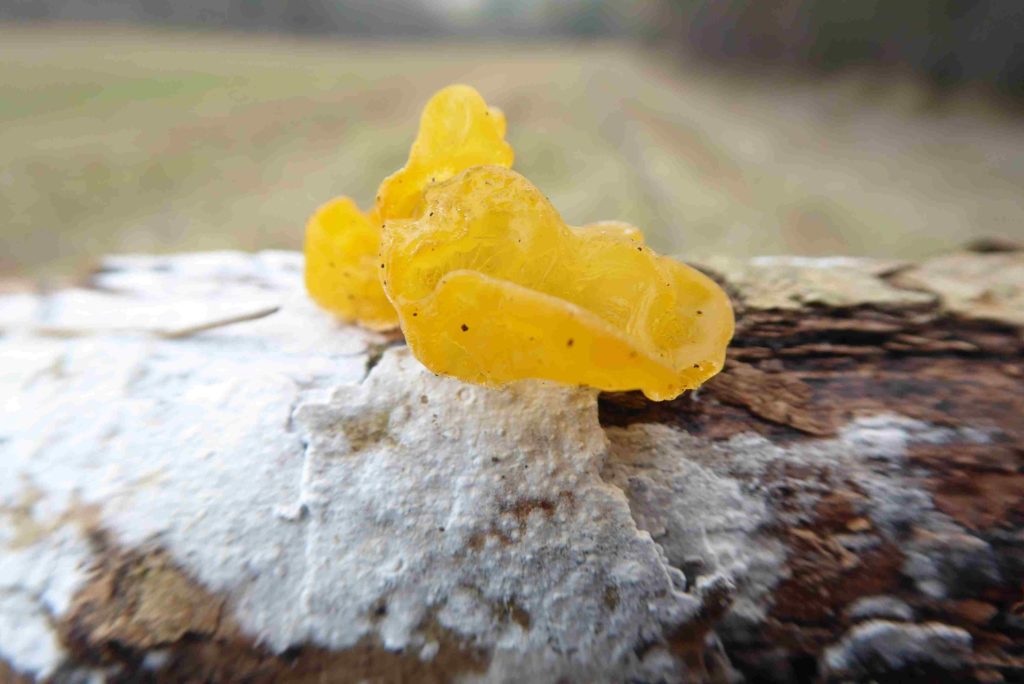
Mandarin Ducks are frequently seen on the river. There are eight here.
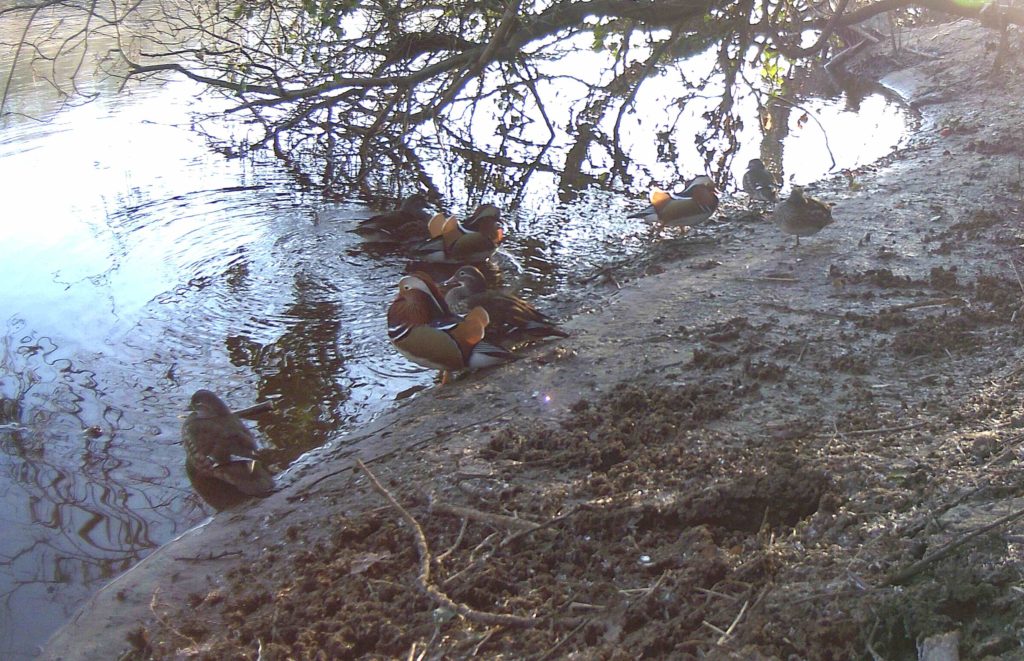
Artwork for Sale
One of our members, Jinny Casey, enjoys painting and offers some of her, and other, work for sale here. They are all original works of art of animals, plants and landscapes and are framed. Each piece is priced at £20.00 and all donations will go to the Trust.
Jinny advises that she could deliver locally and suggests that the donation be put in an envelope for her collection during delivery.
If you are interested, please contact info@ekwt.org.uk

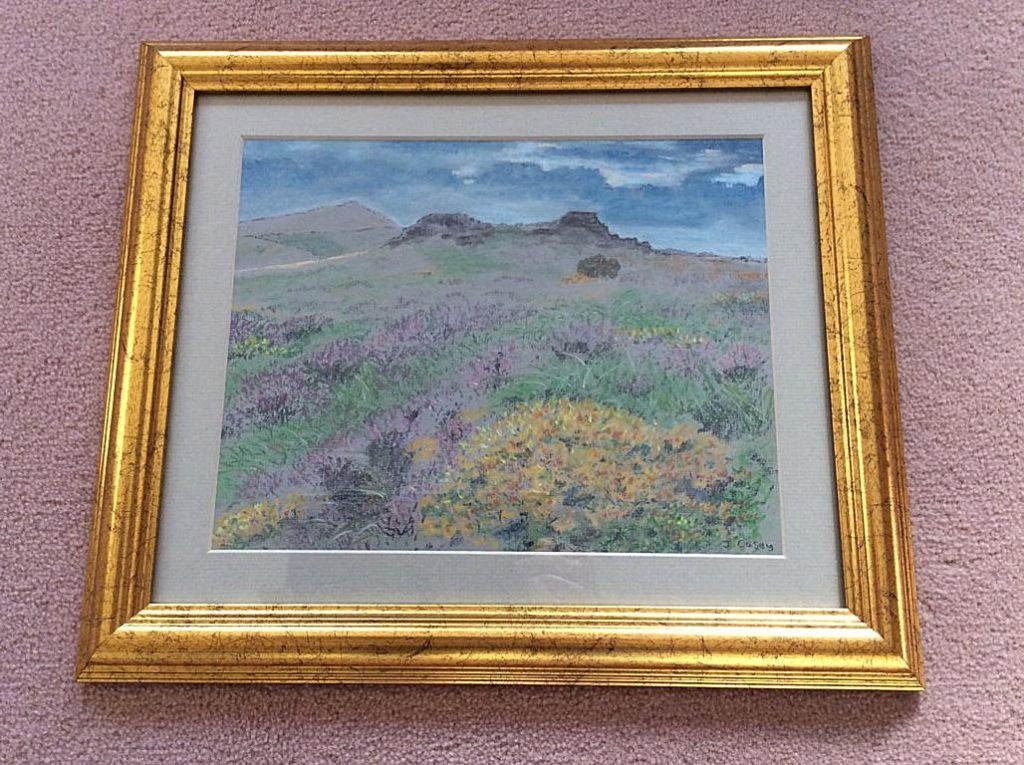

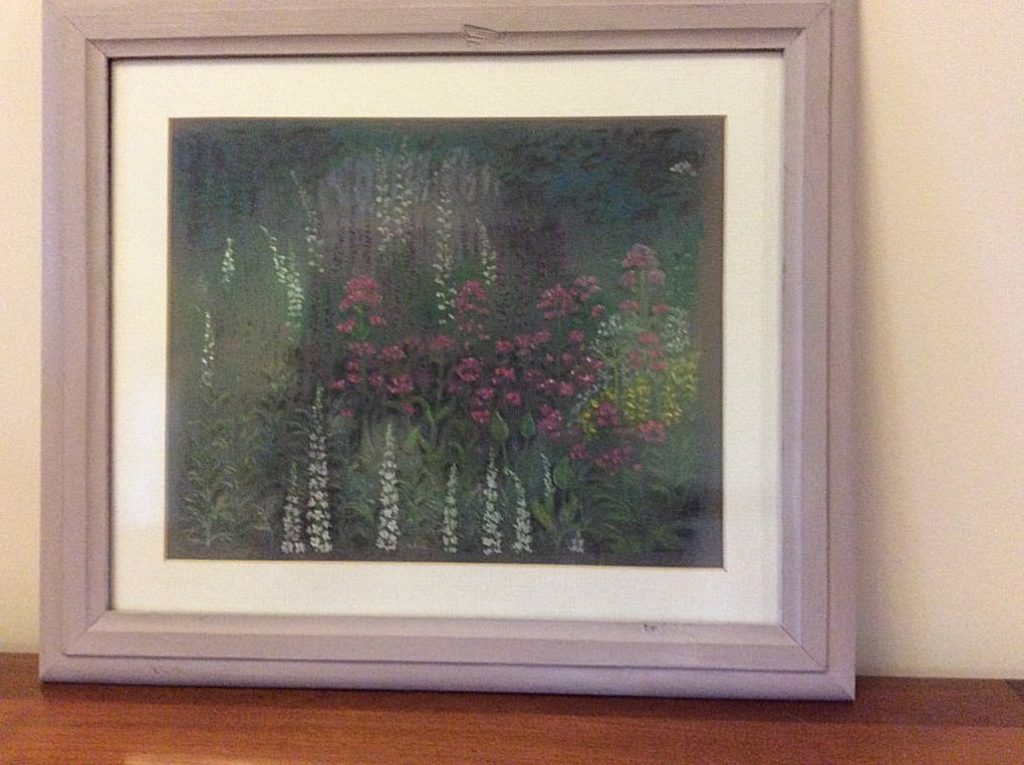


Return of a Favourite
After not being seen in the area for six or seven years, we thought that the Wall butterfly had become extinct locally. Their numbers throughout the UK have declined rapidly over several recent decades and they now have a High Conservation Priority. Their decline is likely being caused by climate change…. it is thought that warmer summers are causing them to start an additional brood which is laid too late for their under-developed larvae to survive autumn and winter.
So how lovely it was to see their return with quite a few adult butterflies being seen in and around Ox Close Wood and on the way up to Woodhall.
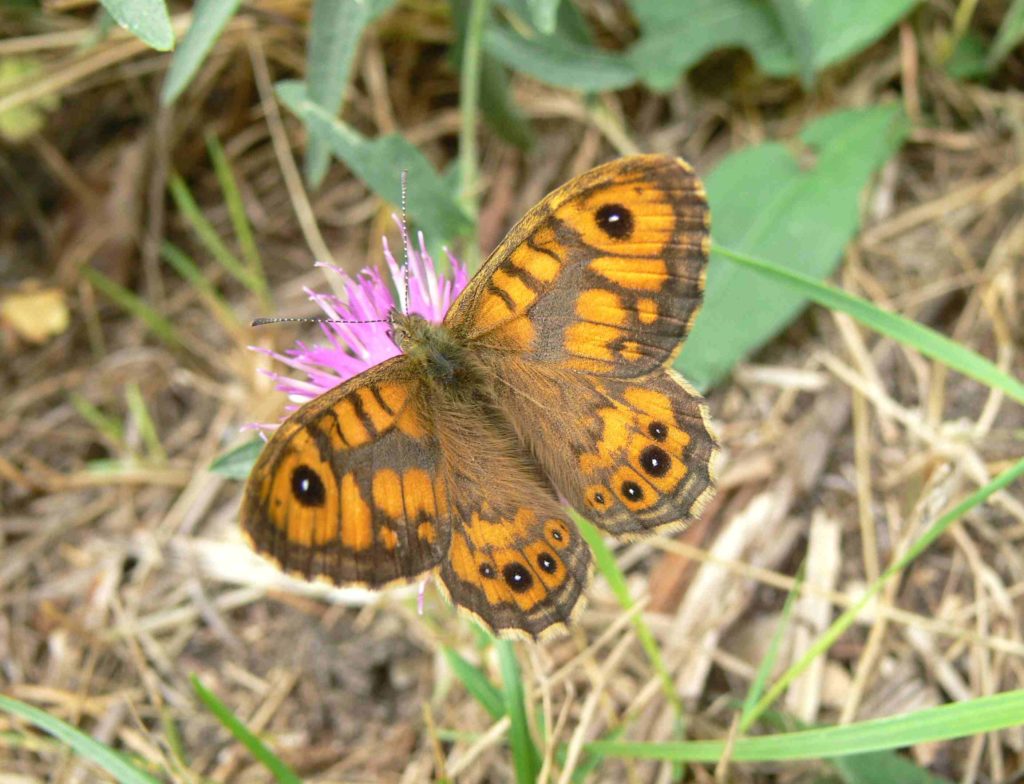
Another new butterfly for the parish this year has been the Dark Green Fritillary. It has been expanding through Yorkshire and had been seen ovipositing in Ox Close. Unfortunately we don’t yet have a good photo of this butterfly. But if you have….!
Recent Sightings
A short walk today into the wood and along the river found Goosanders, Grey Wagtails and a Jay. The Yellow Star of Bethlehem has been innundated during the recent floods but the patch of plants is growing well with quite a few flower buds showing. Other flora and fauna seen were….
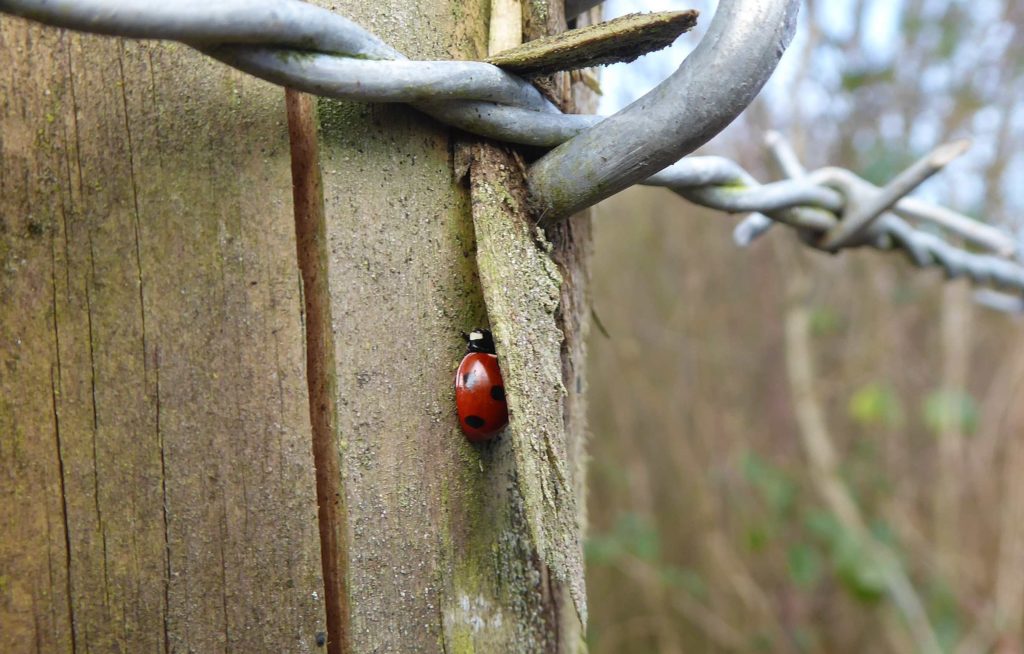
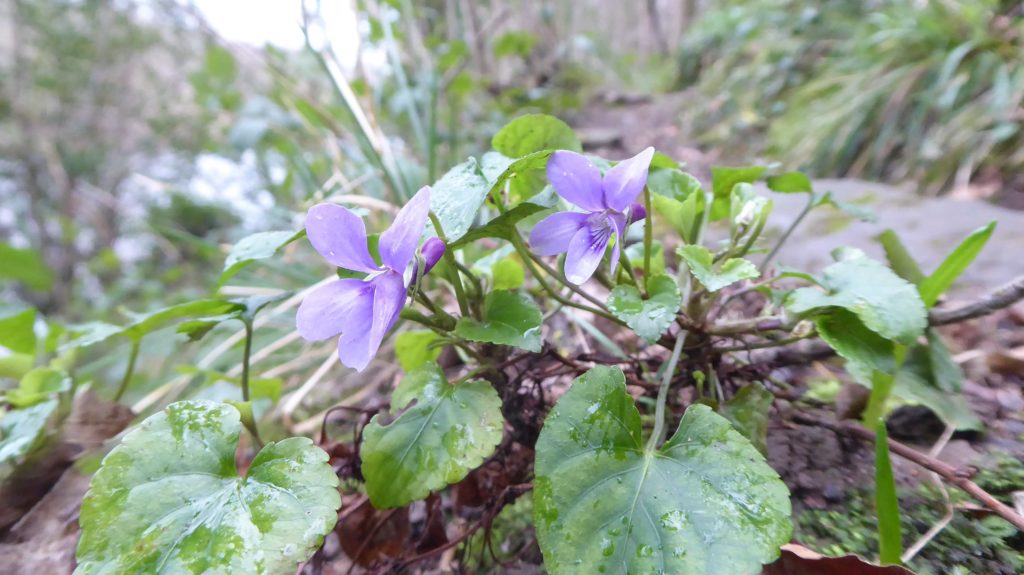
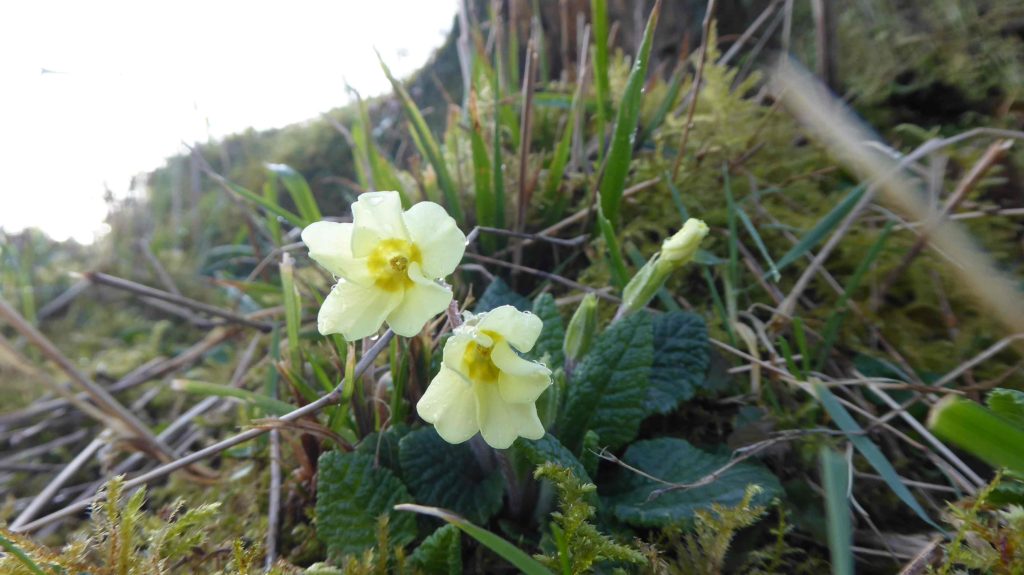
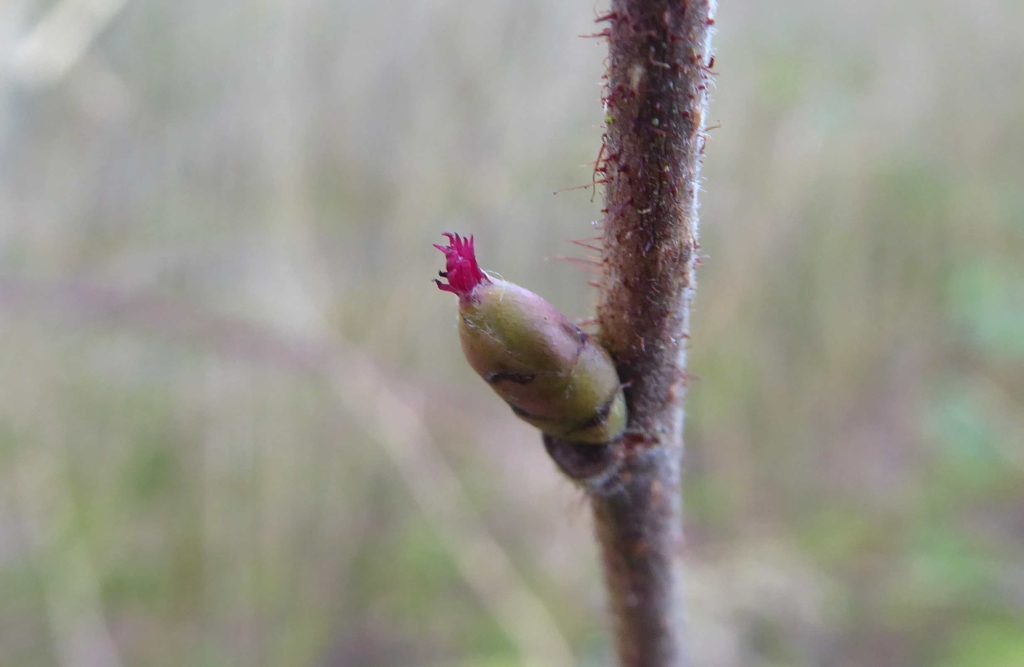
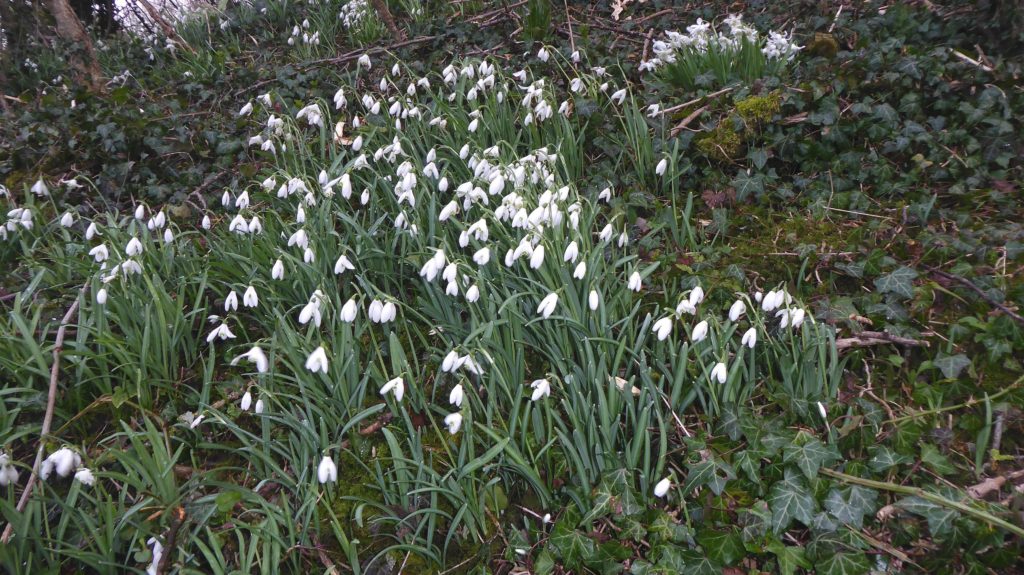
Another New Butterfly
The Brown Argus Aricia agestis is another new butterfly that Trust members have found in Ox Close Wood and in fields in East Keswick. This is great news – showing that the management of our reserves is being rewarded with these successes (see also Silver-washed Fritillary below). The caterpillars’ foodplant is usually Common Rock Rose but more recently they have started to use various geraniums including Meadow Cranesbill of which there is plenty in the parish.
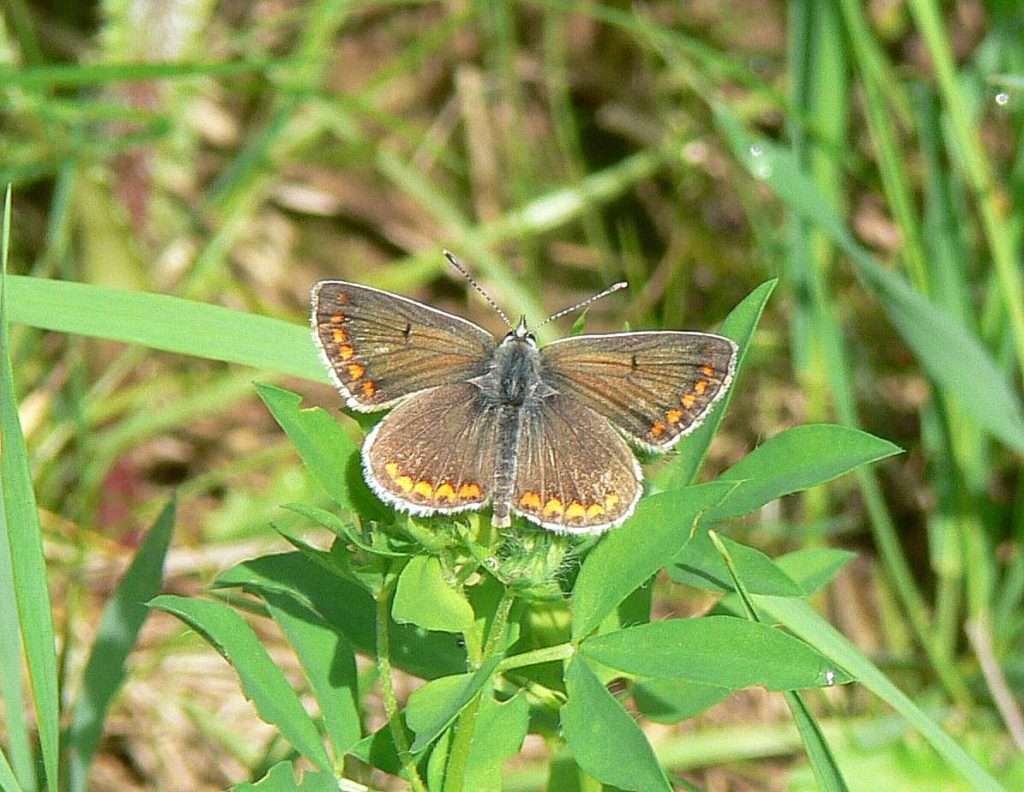
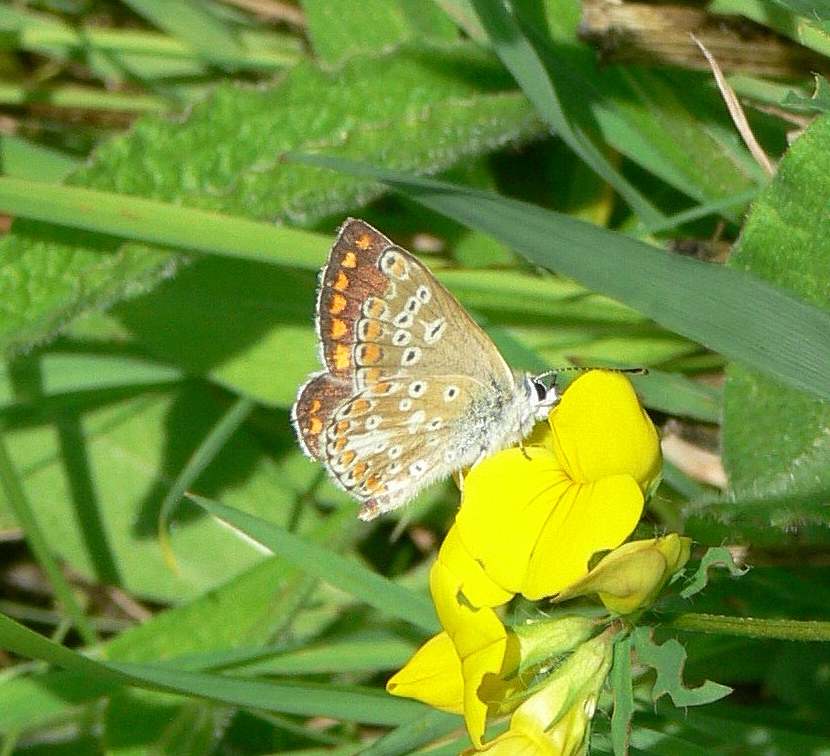
Recent Sightings
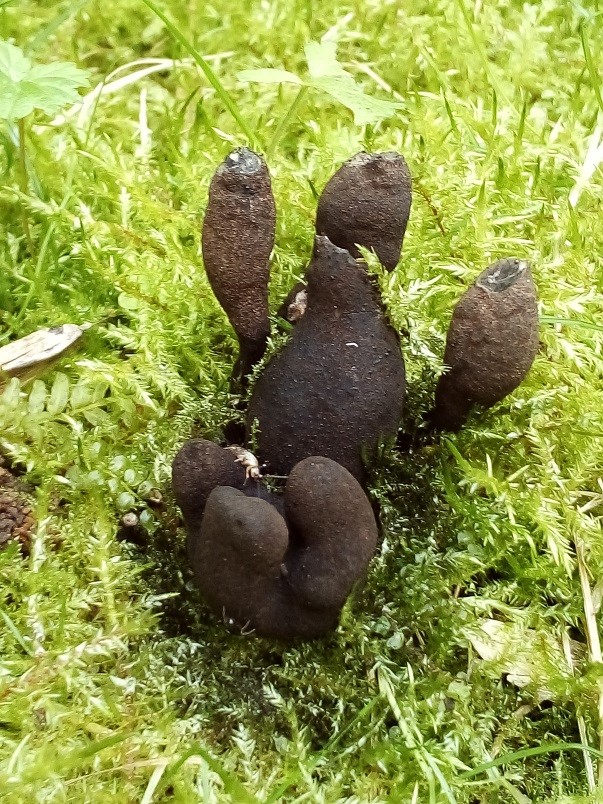
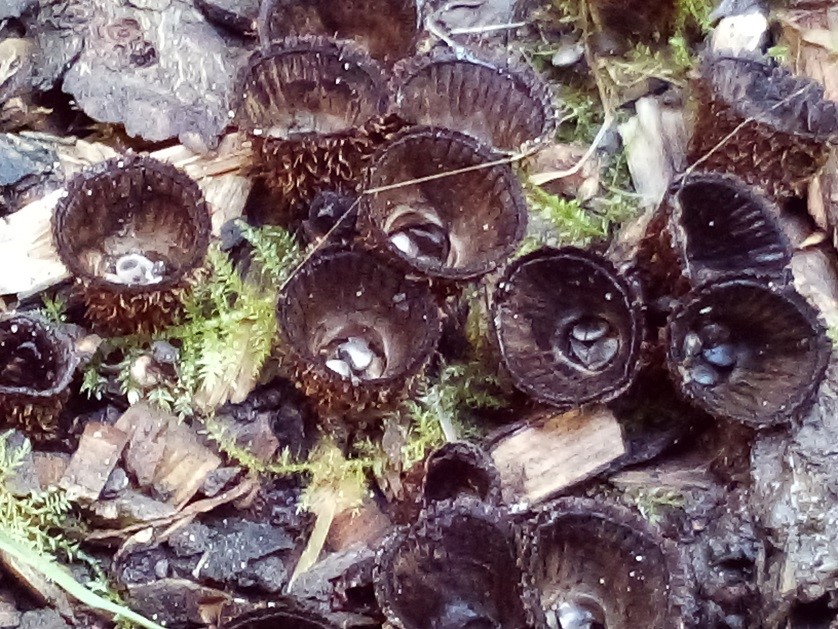
Dead men’s fingers seen in Collingham. We may think of fungi as an autumn phenomenon but they are present all year round… we often see St. George’s mushroom on the bluebell walk in Ox Close. Here are two often overlooked summer fungi. On the left is Dead Man’s Fingers Xylaria polymorpha which grows on dead wood and causes spalting;- the decorative black lines found in some wood. On the right is the Fluted Bird’s Nest Cyathus striatus which tends to grow on soil with wood chip. The “eggs” at the bottom of the nest are spore packets. The cups have evolved so that raindrops shoot the spore packets up to a metre away. They trail a sticky filament that catches on vegetation, ready for ingestion by herbivores and dispersal to new sites. Neither is very showy, but they are interesting!
New Butterfly for Ox Close Wood
The Silver-washed Fritillary (Argynnis paphia) has been seen for the first time by Trust members on 12th July ’19. Comparing the various photos that have been taken since then, there appear to be two males and a female. It’s likely that they have spread from colonies near Bramham. The butterfly recorder for VC64 advises that he has a record of one seen on two or three occasions last year – so this year’s sightings are not the first for the wood.
